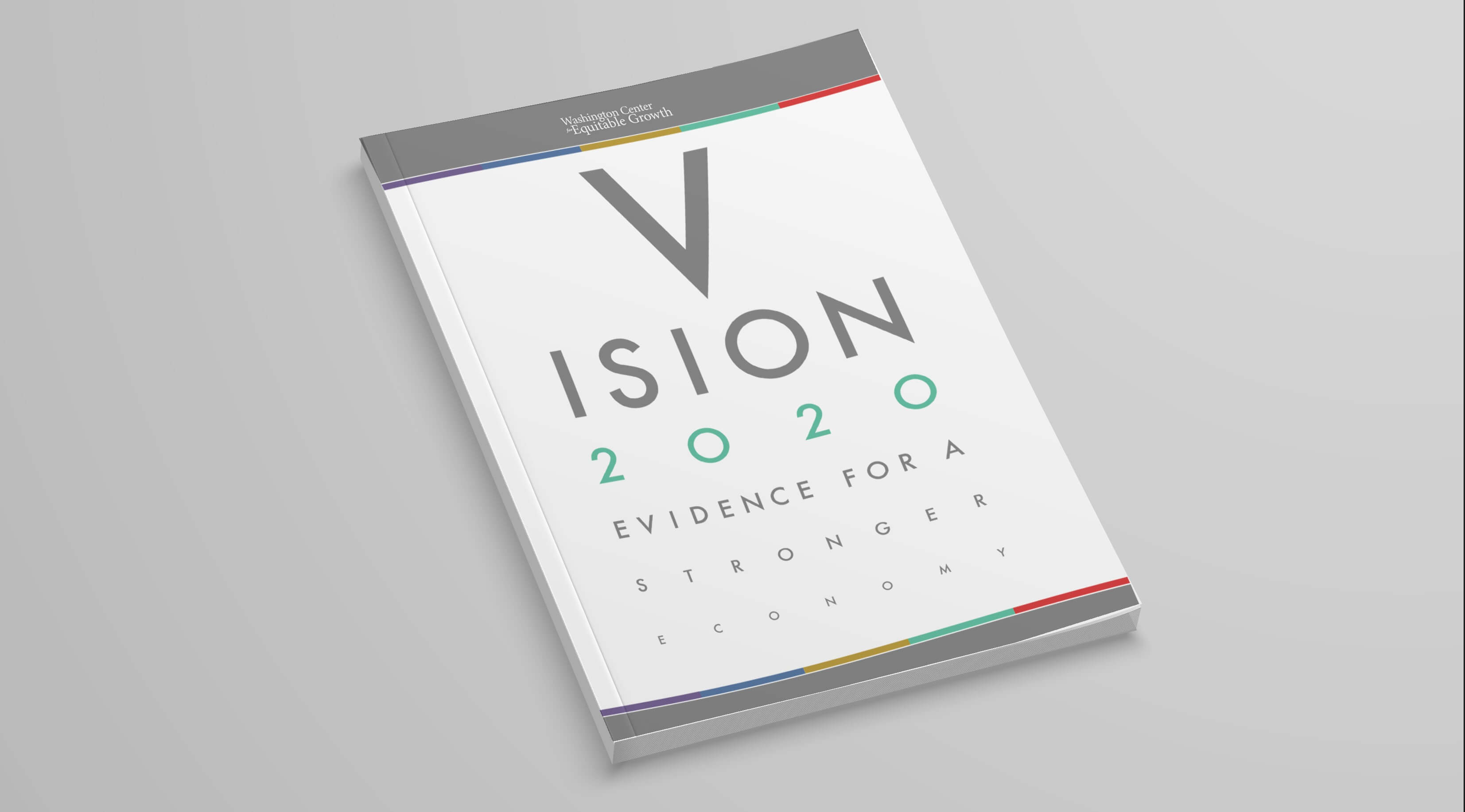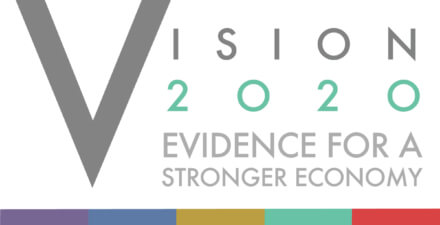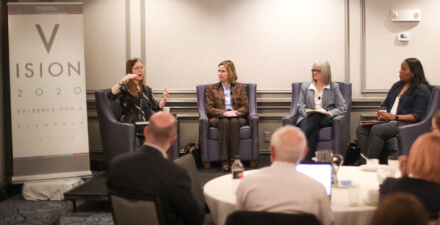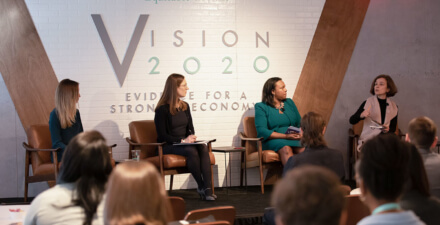Equitable Growth introduces book of innovative policy ideas for 2020

The Washington Center for Equitable Growth today is publishing a collection of 21 essays, with innovative, evidence-based, and concrete policy ideas to shape the 2020 policy debate. The essays, which will be introduced at an event in Washington, DC, cover a wide range of economic issues, including taxes, macroeconomics, racial and environmental justice, labor market reform, and antitrust policies.
The new book, Vision 2020: Evidence for a Stronger Economy, builds on last fall’s Equitable Growth conference of the same name and features leading voices from academia tackling the most pressing economic issues facing Americans today.
Recent transformative shifts in economic thinking illustrate how inequality obstructs, subverts, and distorts broadly shared economic growth. Undoing the economic damage caused by inequality and building the structures and institutions necessary to chart a new path will require systemic reforms in how markets and government work. Vision 2020: Evidence for a Stronger Economy offers some of the most promising, evidence-backed ideas for how to do just that.
At the release event, three book contributors—Robynn Cox of the University of Southern California, Susan Lambert of the University of Chicago, and Fiona Scott Morton of Yale University—will speak with Equitable Growth President and CEO Heather Boushey about their proposals.
Cox’s essay, “Overcoming social exclusion: Addressing race and criminal justice policy in the United States,” questions the idea of dealing with economic inequality through criminal justice reform, arguing instead for a widespread audit of current federal crime-control policies and funding to determine what needs to be done to end mass incarceration and repair the justice system.
Lambert’s contribution, “Fair work schedules for the U.S. economy and society: What’s reasonable, feasible, and effective,” addresses solutions to the problem of job schedule instability, which makes it difficult for many low-income workers to arrange childcare and predict their earnings.
Scott Morton’s essay, “Reforming U.S. antitrust enforcement and competition policy,” lays out the reasons for underenforcement of antitrust laws and proposes funding, personnel, and legislative changes to correct the problem.
Boushey’s essay, “New measurement for a new economy,” examines why it’s important in an age of inequality for policymakers to craft and make use of new metrics that show them and the public how the U.S. economy delivers for all Americans. What’s needed, she says, is GDP2.0 as an absolutely essential component of a policy agenda.
Reimagining an economy that works for all—providing good jobs and opportunities and rebuilding economic and political power for people and communities across the nation—is the defining challenge of our time. Equitable Growth has published Vision 2020 in the hope that the bold ideas advanced by its authors can inspire the country’s leaders to rise to that challenge.







